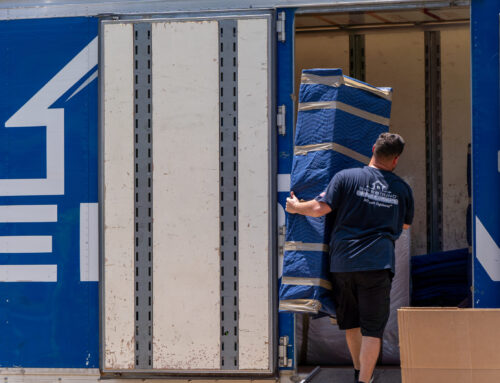Moving can be a taxing and expensive process. Between packing up all your belongings, hiring movers or renting a truck, and finding a new place to call home, the costs can add up quickly. However, with careful planning and a little creativity, you can avoid excess costs when you relocate. Here are some tips to help you save money during your next move.
Table of contents
- Start planning early
- Get rid of unnecessary items
- Pack your own belongings
- Compare moving company prices
- Book your move during the off-season
- Use alternative packing materials
- Label your boxes clearly
- Pack a “moving day” kit
- Check for tax deductions
- Conclusion
1. Start planning early
One of the most important things you can do to avoid excess costs when moving is to start planning early. Give yourself plenty of time to research moving companies, find the best deals on packing supplies, and make arrangements for your new living space. The more time you have to plan, the more likely you are to find the best deals and avoid last-minute expenses
2. Get rid of unnecessary items
Moving can be a great opportunity to declutter and get rid of items you no longer need or want with the help of a junk removal service. Before you start packing, go through your belongings and get rid of anything that you haven’t used in a while or that no longer serves a purpose. You can sell these items online, donate them to charity, or simply throw them away with the help of a junk removal service. The less you have to move, the less you’ll have to pay in moving costs, and you’ll also have less to unpack and organize in your new home. So, take advantage of this opportunity to simplify your life and start fresh in your new home.
3. Pack your own belongings
If you’re on a tight budget, one way to save money on moving costs is to pack your own belongings. You can purchase packing supplies from a variety of retailers, including moving companies and online stores. When you pack your own belongings, you can also ensure that they are properly organized and labeled, making the unpacking process much easier.
4. Compare moving company prices
When it comes to hiring movers, it’s important to shop around and compare prices from multiple companies. Look for companies that offer free estimates and be sure to ask about any additional fees or charges that may apply. Make sure you’re comparing apples to apples when it comes to services provided and that you’re not being overcharged for services you don’t need.
5. Book your move during the off-season
If possible, try to schedule your move during the off-season. Summer is the busiest time of year for moving companies, so rates are often higher during this time. If you can wait until the fall or winter to move, you may be able to save money on moving costs.
6. Use alternative packing materials
Packing materials can be expensive, but there are alternative materials you can use to save money. For example, instead of buying bubble wrap, you can use towels, blankets, or even newspaper to wrap fragile items. Instead of buying boxes, you can ask local retailers for used boxes or check online marketplaces like Craigslist or Facebook Marketplace for free boxes.
7. Label your boxes clearly
Labeling your boxes clearly can save you time and money when it comes to unpacking. When you label your boxes, be sure to include the contents of the box and which room it belongs in. This will make it easier for you to find what you need when you start unpacking, and it will help the movers know where to place the boxes in your new home.
8. Pack a “moving day” kit
When you’re in the middle of moving, it can be easy to misplace important items or forget where you packed something. To avoid this, pack a “moving day” kit with all the essentials you’ll need for your first day and night in your new home. This can include items like toiletries, a change of clothes, important documents, and snacks. Keep this kit with you during the move, so you have easy access to these items when you need them.
9. Check for tax deductions
If you’re moving for work, you may be eligible for tax deductions on your moving expenses. Be sure to keep all your receipts and document your expenses, so you can claim them on your taxes. Check with a tax professional to see if you’re eligible for any deductions and how to claim them.
Conclusion
In conclusion, moving can be a costly endeavor, but with some careful planning and smart choices, you can save money and avoid excess costs. Start planning early, declutter your belongings, pack your own belongings, compare moving company prices, book your move during the off-season, rent a truck instead of hiring movers, use alternative packing materials, label your boxes clearly, pack a “moving day” kit, and check for tax deductions. By following these tips, you can make your move more affordable and less stressful. Good luck with your move!





